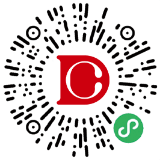尽管走在太阳能技术的最前沿,太阳能应用在以色列并未广泛流行。因此,以政府出台了旨在改变这种状况的新举措。
近日,以色列公用事业管理局已宣布了一项新倡议,推动该国太阳能发电量。周三,该管理局宣布,为提高太阳能发电量,政府愿意购买电力,政府将支付太阳能电力生产商1.55谢克尔(40美分)至2.04谢克尔(53美分)至)/每千瓦时。
以色列政府以支付太阳能发电商入国家电网补贴的方式激励本国可再生能源生产,从而限制权力机构购买其可支付的可再生能源量。
数月前以色列国家基础设施部长Uzi Landau宣布,到2020年以色列10%的能源需求将来自诸如风能和太阳能等可再生能源。为了达到这个目标,以色列必须安装足够的可再生能源基础设施,生产4000兆瓦小时的电力。
根据以色列国家基础设施部的报告,目前以色列的三个主要能源来源是煤(69%),天然气(23%)及石油(7%)。

Despite being at the forefront of solar technology, solar power is not yet widespread in Israel. A new initiative aims to change that.
Israel’s Public Utilities Authority has announced a new initiative aimed at boosting the volume of solar power produced in the country.The authority announced on Wednesday that it would boost volume of solar power the government is willing to buy, while reducing by 25 percent the rate it would pay solar power producers from 2.04 shekel [53 cents] to 1.55 shekels [40 cents] per kilowatt hour.
Israel incentivizes the production of renewable energy by paying an enhanced rate to producers who pump energy from renewable sources into Israel’s electrical grid, thereby forcing the authority to limit the volume of renewable energy it can afford to buy.
The move comes a few months after Israel’s National Infrastructure Minister Uzi Landau announced that 10 percent of Israel’s energy needs will come from renewable sources such as wind and solar power by 2020. To meet the goal, Israel must install enough renewable energy infrastructure to produce over 4,000 megawatts hours of power.
According to the Israeli Ministry of National Infrastructure the country’s three main energy sources are coal (69 percent), natural gas (23 percent) and oil (7 percent).
索比光伏网 https://news.solarbe.com/201007/29/12299.html



